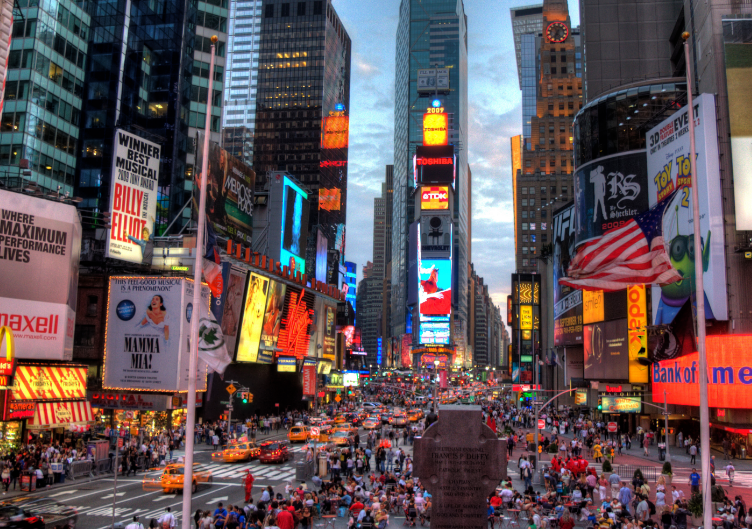New York’s iconic Broadway just slammed the door on a massive casino plan backed by Jay-Z. The $5.4 billion Caesars Palace project in Times Square got voted down, crushing hopes for a gambling hotspot amid fierce theater opposition. What led to this dramatic showdown, and what’s next for the city’s entertainment future?
The Vote That Killed the Casino Vision
A state-commissioned Community Advisory Committee delivered a decisive blow on September 17, 2025, rejecting the ambitious casino bid in a 4-2 vote. This ended months of heated debate over transforming the office tower at 1515 Broadway into a luxury resort with gaming, hotels, and entertainment.
The proposal, led by Caesars Entertainment, SL Green, and Jay-Z’s Roc Nation, promised big economic boosts like thousands of jobs and billions in taxes. But critics argued it would harm the theater district’s soul.
Broadway leaders, including theater owners and producers, rallied hard against it. They worried about increased traffic, crime, and a shift away from family-friendly shows.
The building targeted for the casino houses the Minskoff Theatre, where “The Lion King” draws crowds daily. Opponents feared the gambling vibe would clash with this cultural gem.
One committee member called it a “despicable display of cowardice,” but the vote stood firm.

Why Broadway Fought Back So Hard
Theater folks saw the casino as a direct threat to their world. Groups like the Broadway League voiced concerns that gamblers might skip shows, hurting ticket sales and local jobs.
Residents and small business owners joined the outcry, pointing to potential rises in addiction and congestion in already bustling Times Square.
Jay-Z and his partners tried to sweeten the deal with pledges of $250 million for community funds and $15 million for nearby areas like Hell’s Kitchen. They highlighted 3,800 permanent jobs and 3,000 construction roles.
Despite these offers, the opposition held strong. A New York Times report noted similar rejections for other casino bids in the area, showing a broader pushback against gambling expansion.
Protests and public meetings amplified the voices against the plan. One local producer said, “Times Square is for dreams on stage, not dice at tables.”
This clash highlights the tension between economic growth and preserving cultural landmarks in a city always evolving.
The Players Behind the High-Stakes Bid
Jay-Z, the rapper turned business mogul, brought star power through Roc Nation. He lobbied lawmakers, including a notable meeting with Senate Majority Leader Andrea Stewart-Cousins in May 2025.
Caesars Entertainment aimed to expand its brand, while SL Green, a major real estate player, saw it as a way to revitalize office space post-pandemic.
Supporters argued the casino would generate $7 billion in new taxes over time, based on their economic projections shared in public bids.
But data from similar projects elsewhere raised doubts. A 2024 study by the Urban Institute found that urban casinos often boost short-term revenue but can strain local services without careful planning.
The bid started gaining traction in 2023, with Roc Nation pushing for a spot at the “Crossroads of the World.”
Key promises included:
- $250 million community fund for local improvements
- Focus on cultural integration to blend with Broadway’s vibe
- Security measures to address safety fears
Yet, these weren’t enough to sway the committee.
What This Means for New York’s Gambling Future
With this rejection, attention shifts to other downstate casino licenses. New York state plans to award three, and eight proposals were in the running.
The Times Square defeat could inspire similar resistance elsewhere, especially in culturally sensitive spots.
Experts predict a ripple effect on tourism. Broadway generates about $14.8 billion annually for the city, according to a 2023 Broadway League report, far outpacing potential casino gains.
| Aspect | Casino Proposal Impact | Broadway Current Impact |
|---|---|---|
| Jobs | 3,800 permanent + 3,000 construction | Over 87,000 in theater industry (2023 data) |
| Revenue | $7 billion in taxes projected | $14.8 billion annual economic boost |
| Risks | Increased traffic and addiction concerns | Maintains family-friendly appeal |
This table shows the stark contrasts that fueled the debate.
For everyday New Yorkers, it means Times Square stays true to its theatrical roots, potentially avoiding disruptions to daily life and commutes.
The decision underscores how community voices can override big-money bids in urban planning.
Leave a Reply